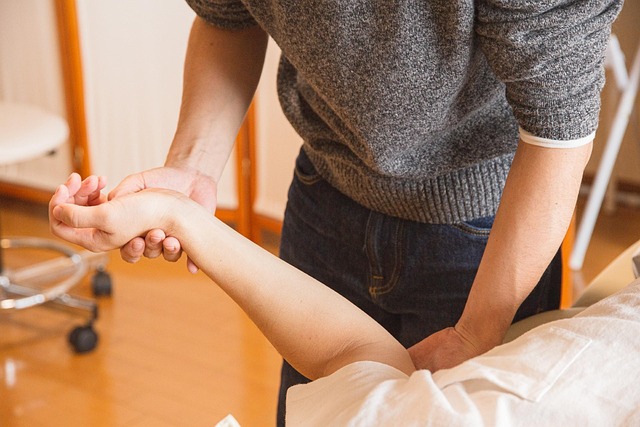Cold water immersion, a tradition dating back thousands of years, has evolved from ritualistic practice to modern cryotherapy alternative. Indigenous cultures globally have long used it for its therapeutic benefits and spiritual significance, such as purification, strength, and resilience. Now, ice baths and cryotherapy chambers offer accessible ways to tap into the medicinal properties and mental clarity benefits of this ancient ritual, rooted in ancient wisdom and cultural practices like sori-ai and Nordic rituals.
“Around the globe, cultural traditions of cold water immersion have captivated communities for centuries. From ancient rituals involving icy rivers to modern practices like ice baths and cryotherapy, these traditions offer a wealth of psychological and physiological benefits. This article delves into the historical origins, diverse cultural significances, and global practices of cold water immersion. We explore its historical roots, trace unique cultural adaptations, and uncover the scientific insights behind its profound effects. Additionally, we look at modern applications and emerging trends, including the integration of cryotherapy alternatives into mainstream wellness practices.”
Historical Origins and Cultural Significance
The tradition of cold water immersion has deep historical roots, stretching back thousands of years across various cultures. Originating as a ritualistic practice in ancient civilizations, it has evolved into a modern-day phenomenon with growing popularity. Many indigenous cultures around the globe have long embraced cold water immersion for its therapeutic benefits and spiritual significance. From the icy rituals of Norse warriors to the freezing practices of Japanese and Chinese traditional medicine, this ancient custom has withstood the test of time.
In many societies, cold water immersion is deeply intertwined with cultural beliefs and customs. It often serves as a rite of passage, symbolizing purification, strength, and resilience. In some cultures, it’s believed to wash away sins or negative energies, promoting spiritual cleansing and renewal. As cryotherapy alternatives gain modern popularity, these ancient practices offer a unique perspective on the healing power of cold, highlighting humanity’s enduring fascination with its therapeutic potential across diverse cultural landscapes.
– Tracing the roots of cold water immersion rituals globally
The practice of cold water immersion, often explored as a form of cryotherapy alternative, has deep roots in various cultural traditions across the globe. From ancient indigenous practices to modern wellness trends, this ritualistic behavior has shown resilience and universality. In many cultures, immersing oneself in cold waters is believed to hold medicinal properties, promote spiritual cleansing, or bring about a sense of mental clarity and physical rejuvenation.
The origins can be traced back centuries ago when tribes and communities relied on icy rivers and lakes for survival. Over time, these natural elements evolved into integral parts of their rituals and well-being practices. Today, cold water immersion continues to gain popularity as a holistic approach to health and wellness, with modern adaptations such as ice baths and cryotherapy chambers providing accessible ways to experience the benefits of cold therapy.
– Understanding cultural beliefs and practices surrounding water as a purifying agent
Water holds immense cultural significance as a symbol of purification and rebirth across various societies globally. This belief has given rise to diverse practices involving cold water immersion, offering a unique glimpse into different cultural traditions. Many ancient cultures view water as a powerful cleansing agent, capable of washing away physical and spiritual impurities, and promoting overall well-being. As such, rituals involving aquatic elements, like cold plunges or hydrotherapy, have become integral parts of their healing and wellness practices.
These cultural traditions often see cold water immersion as a form of cryotherapy, an alternative treatment gaining modern popularity. Ancient customs include bathing in ice-cold springs, performing ritualistic dives into the ocean at specific times of the year, or practicing daily cold showers. Such practices are believed to stimulate the body’s natural healing processes, boost circulation, and enhance mental clarity. Exploring these cultural beliefs and their associated practices provides a fascinating lens through which we can understand humanity’s deep-rooted connection with water as a source of rejuvenation and spiritual cleansing.
Popular Practices and Techniques
Across various cultures, cold water immersion takes on diverse forms and practices, offering a range of benefits beyond traditional cryotherapy alternatives. From the Japanese practice of sori-ai, or foot soaking in cold water, to the Nordic tradition of sauna followed by a plunge in icy waters, these rituals tap into ancient wisdom. Many cultures incorporate plunges into natural bodies of water like rivers, lakes, or even icy glaciers as part of their cultural practices and healing traditions.
These practices often involve specific techniques, such as alternating between hot and cold baths (known as contrast therapy), deep breathing exercises, and mindful meditation during the immersion. Some cultures use herbs, essential oils, or other natural additives in their water to enhance the sensory experience and therapeutic effects. These practices not only promote physical rejuvenation but also foster mental clarity, reduce stress, and strengthen a sense of community, connecting individuals to nature and one another.
The global exploration of cold water immersion traditions reveals a rich tapestry of cultural beliefs and practices, offering a fascinating insight into humanity’s relationship with water as a purifying force. From ancient rituals to modern cryotherapy alternatives, these practices demonstrate the enduring appeal of cold water immersion as a means of rejuvenation and healing. By understanding and respecting these diverse cultural traditions, we can appreciate the profound impact water has on our well-being, both physically and mentally, across different societies.
